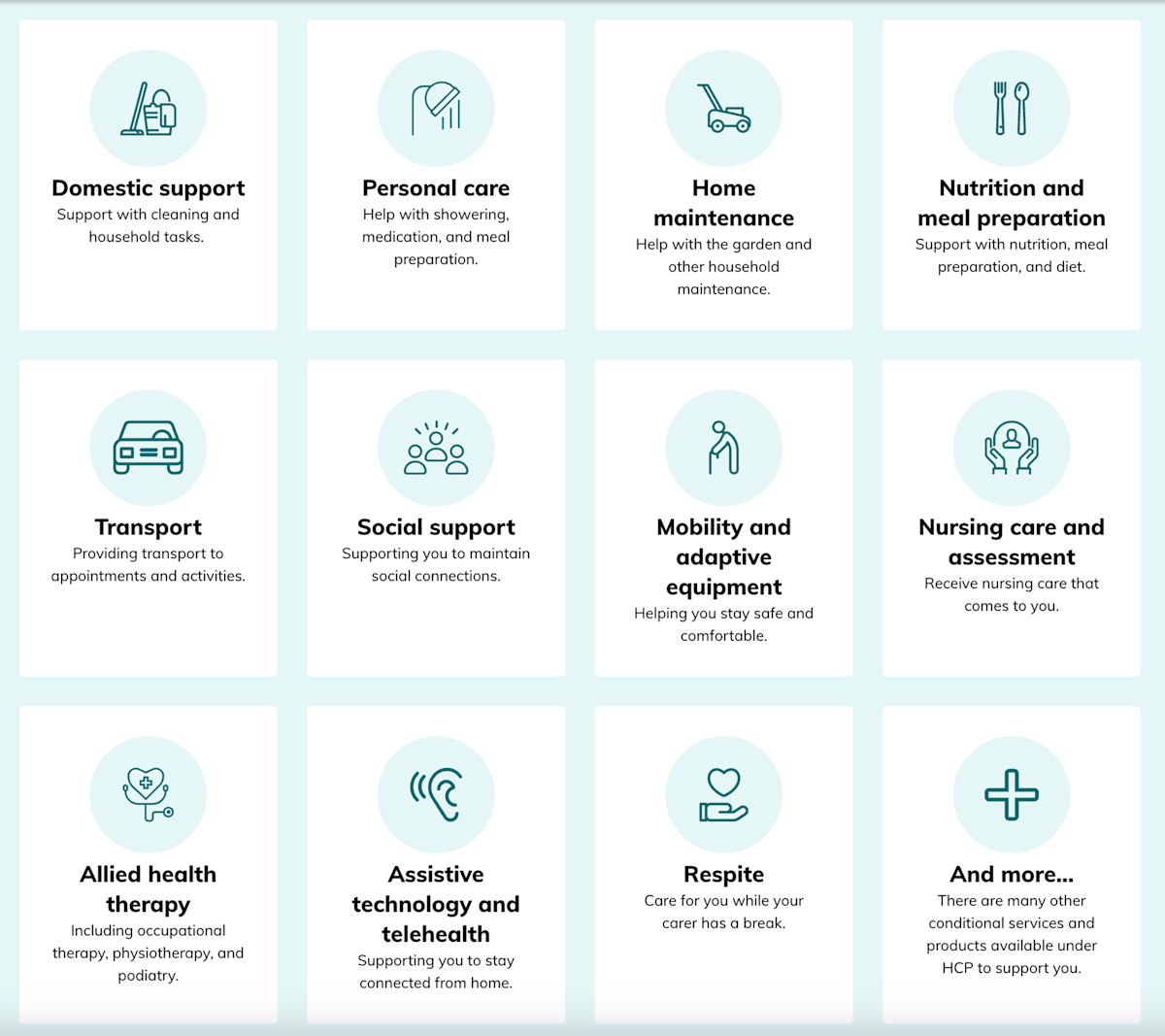How home care package providers personalize care to individual disability goals
How home care package providers personalize care to individual disability goals
Blog Article
All Regarding Home Care Solutions for People With Disabilities: NDIS Registered Support
Home treatment services under the NDIS play a pivotal role in supporting individuals with disabilities. These solutions are developed to enhance day-to-day living with tailored aid, ranging from individual like wheelchair support. Comprehending just how to browse these choices can be complex. This introduction discovers the various aspects of NDIS home treatment, from offered services to the option of providers, highlighting vital considerations for those looking for assistance. The journey towards encouraged treatment starts here.
Understanding the NDIS and Its Function
The National Disability Insurance System (NDIS) functions as a transformative structure made to offer support and solutions for people with handicaps. Developed to boost the lifestyle and guarantee equitable access to necessary sources, the NDIS equips individuals by offering individualized strategies customized to their distinct needs. It aims to promote self-reliance, allowing individuals to pursue their personal goals and aspirations.Through a structured strategy, the NDIS allots financing for numerous assistances, including education, work help, and area involvement. This all-inclusive plan not only concentrates on immediate treatment but likewise emphasizes lasting developing outcomes. By advertising option and control, the NDIS encourages individuals to choose their favored solution providers, ensuring that treatment straightens with their values and preferences. Inevitably, the NDIS represents a significant commitment to enhancing the lives of individuals with impairments, cultivating inclusivity, and building a much more supportive society.
Types of Home Care Provider Available
Various kinds of home treatment services provide to individuals with impairments, primarily concentrating on personal treatment assistance and break treatment alternatives. Personal care support gives vital assistance with day-to-day activities, while respite treatment supplies short-term relief for main caregivers. Recognizing these solutions is essential for making sure the wellness of both people with handicaps and their families.
Personal Treatment Support
While steering day-to-day live can present difficulties for individuals with handicaps, individual treatment support provides important support customized to their one-of-a-kind requirements. This kind of home care solution encompasses an array of tasks made to promote independence and improve lifestyle. Individual care aides assist with daily tasks such as bathing, dressing, grooming, and toileting, making sure people keep individual health and convenience. They may likewise aid with meal preparation, medication management, and wheelchair support. By supplying customized care, these experts equip people to engage more totally in their day-to-day regimens and social tasks. Overall, personal care assistance plays a considerable role in fostering self-respect and autonomy for those with impairments, allowing them to thrive in their home environment.

Reprieve Care Options
Reprieve treatment offers as a necessary resource for households and caregivers of individuals with disabilities, giving temporary remedy for the needs of everyday caregiving. This kind of service can take numerous forms, including in-home reprieve care, where experienced professionals check out the home to aid with treatment jobs. Families may decide for facility-based break care, where individuals obtain care in a specific atmosphere, allowing caregivers to take a break. Furthermore, some organizations provide emergency situation respite solutions for unanticipated circumstances. These alternatives not only assist relieve caretaker stress yet additionally promote the well-being of individuals with disabilities by providing them new experiences and social interaction. On the whole, respite care plays a critical role in sustaining both caregivers and those they care for.

Exactly How to Access NDIS Home Care Solutions
Accessing NDIS home care services involves understanding the qualification standards established forth by the National Disability Insurance Scheme. People have to navigate a structured application process to secure the essential assistance customized to their requirements. This section will make clear both the qualification demands and the steps associated with requesting solutions.
Eligibility Criteria Explained
To certify for NDIS home care solutions, individuals have to satisfy particular qualification requirements that analyze their circumstances and requirements. Initially, applicants must be matured between 7 and 65 years and have a irreversible and considerable handicap that affects their capacity to perform day-to-day tasks. Additionally, they must be an Australian person, a permanent local, or hold a Protected Unique Group Visa. The NDIS requires evidence of the impairment, typically with medical analyses or records. Moreover, individuals ought to demonstrate that they need assistance to join social and financial life. These standards guarantee that services are guided in the direction of those that truly need support, promoting self-reliance and enhanced lifestyle for people with specials needs.
Application Refine Actions
Can I Select My Very Own Assistance Employees Through NDIS?
The specific made inquiries whether they can pick their own assistance workers under the NDIS structure. Typically, individuals have the versatility to choose assistance workers, fostering individualized care that straightens with their certain needs and choices.
What Happens if My Demands Modification After Obtaining Support?
If a person's needs adjustment after receiving assistance, they must interact these adjustments to their company. Changes can be made to the care strategy, making certain that the assistance remains relevant and reliable for their scenarios.

Exist Restricts on The Number Of Hours of Treatment I Can Get?
The individual asked regarding potential limitations on the variety of treatment hours received. Typically, such limitations may exist based on details policies or funding setups, stressing the significance of examining contracts and guidelines on a regular basis.
Can I Make Use Of NDIS Financing for Home Adjustments?
The concern of utilizing funding for home modifications develops frequently. Generally, people may make use of NDIS financing for required modifications to their homes, making certain accessibility and security, contingent upon meeting certain eligibility requirements and standards.
Just how Do I Handle Issues Concerning My Home Treatment Providers?
To deal with problems about home care solutions, people ought to initially document their worries. After that, they can connect straight with their service provider, seeking resolution, or intensify the concern to pertinent oversight bodies if essential. Home care solutions under the NDIS play a critical function in sustaining individuals with handicaps. Numerous kinds of home treatment solutions cater to people with impairments, mostly focusing on personal treatment assistance and break care choices. support at home. Individual treatment help gives important support with day-to-day tasks, while reprieve treatment find more offers short-term relief for primary caregivers. Family members may opt for facility-based reprieve treatment, where individuals receive care in a specific setting, allowing caretakers to take a break. Exactly how can family members properly handle the economic aspects of home treatment services for people with handicaps?
Report this page